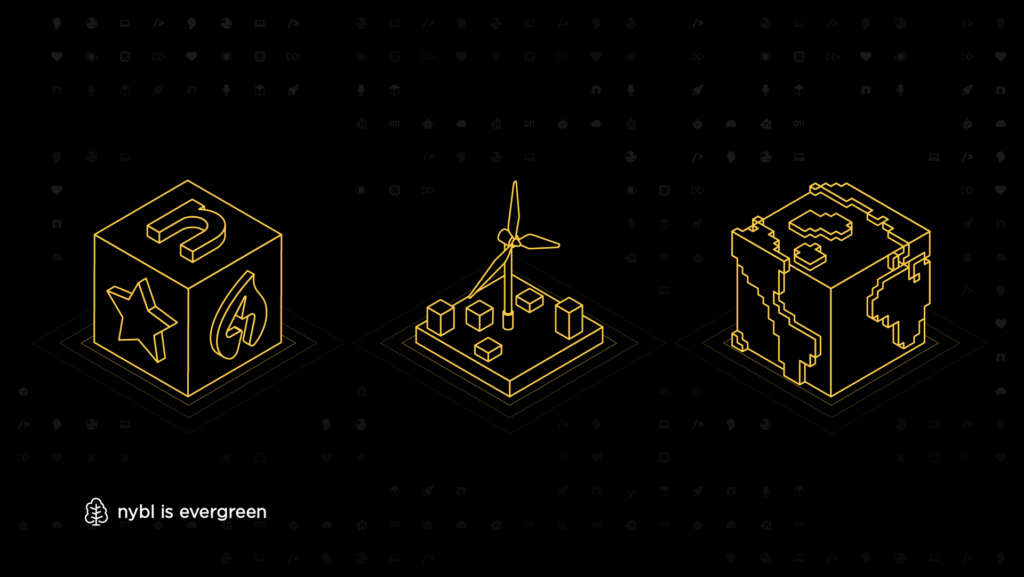The 21st century has introduced a significant transformation in people’s lives due to a rapid shift from a traditional economic system to an economy based on Information and Technology. This transition toward digital technologies can promote a circular economy and offer tools to create an efficient and equitable society, hence promoting sustainability.
For instance, in this digital age, what has brought about some significant transformative changes across industries and societies is the adoption of Artificial Intelligence (AI) and machine learning (ML), which lay the foundation of the digital economy concept. However, as they say, with great power comes great responsibility! Particularly in extractive and the “hard to decarbonize” industries, AI is also believed to possess massive potential to either significantly aid or hinder global sustainability efforts, which is a critical concern. Therefore, the developmental process of AI must be guided by principles that align with the broader goals of humanity including environmental protection, resource conservation, and social equity.
The Intersection of AI and Sustainability
To make strategic plans for sustainable development and create a better future for everyone, we should leverage AI systems. As per a research study published in Nature, AI can support the world in achieving 79% of the Sustainable Development Goals (SDGs). It has been observed that AI systems have a dual relationship with sustainability. First, they possess the potential to significantly assist in optimizing resource use, improve energy efficiency, and offer customized solutions to complex environmental issues. However, on the other hand, AI’s computation requirements can be energy-intense, which can potentially exacerbate the global carbon footprint and contribute to electronic waste. Therefore, there is a great need to address AI-related issues holistically to ensure that AI development is beneficial and not detrimental. It includes an in-depth review of the life cycle of AI systems – from data centers’ energy consumption to the end-of-life disposal of hardware and sustainability of its use.
Navigating AI Development toward Sustainable Futures
Needless to say, a sustainable AI ecosystem should involve well-thought strategies that minimize the environmental impact of AI operations. Since sustainability is a significant factor considered by users and stakeholders alike, it is vital to maximize the potential of AI to contribute to and enhance sustainability goals. It can be achieved by investing in green computing and renewable energy resources to power data centers. Additionally, there is a significant need to optimize AI algorithms to facilitate energy efficiency and reduce the carbon footprint of machine learning processes.
Furthermore, AI can be leveraged to support the world’s environmental goals through its crucial role in monitoring biodiversity, optimizing renewable energy distribution, and stimulating ecological systems to predict and mitigate the hazardous effects of climate change.
Ethics and Equity in AI
It is vital to embed ethics and equity into AI to guide technology toward the enhancement of human dignity and the promotion of a fair and just society. Importantly, the social aspect of sustainability must not perpetuate or amplify existing inequalities, but rather leverage AI to eliminate it. Emphasis must be made throughout the development of AI systems and algorithms to identify, remove and mitigate any biases that may generate discriminatory outcomes, particularly those that can disproportionately affect marginalized communities. To prevent such outcomes, developers and stakeholders should mandate the development of AI systems with ethical considerations to contribute to a more equitable society. The focus should be on developing AI systems that are accessible and usable by everyone regardless of age, ability, or background. It is important to promote inclusive AI development processes to identify and correct biases. When policies that mandate transparency and accountability in AI systems are incorporated into developmental processes, they contribute to public trust and equitable outcomes.
Global Collaboration for Sustainable AI
A single hand alone cannot clap! Similarly, no single entity can direct AI toward sustainability alone. It is the need of the hour for governments, industries, academia, and civil societies to come together and ensure that AI development is aligned with sustainability priorities across borders. Multilateral institutions, such as the United Nations, serve as important platforms for nations to address complex challenges, like those which must be addressed when considering AI solutions to sustainability challenges. Globally we must foster international cooperation, standardize norms, and create guidelines that ensure the responsible development of AI and despite barriers associated with global supply chains, the proprietary nature of AI technologies, and the competitive rush for AI advancements, we must ensure sustainability and equity in AI solutions. Global collaboration can facilitate the integration of AI with sustainability through various measures, such as the development of sustainable AI policies, by encouraging the use of AI to address environmental challenges, greening AI infrastructure, enhancing public awareness, and supporting AI literacy and inclusion.
Final Thoughts
The alignment of AI development with global sustainability priorities is not just technical – it is a societal imperative. It is about designing and constructing a future where technology serves for the betterment of the planet and its inhabitants. This fosters an environment where innovation contributes to the well-being of all, rather than a few. As AI continues to evolve, it is our responsibility to leverage all the opportunities to guide it toward the path of sustainability. Only by embedding sustainability into the core of AI, can we create a world that is smart, sustainable, and just for generations to come. This is at the core of nybl as an organization, it is embedded in our product design, our machine learning practices and our AI deployment. Sustainability is something we are passionate about and we are proud to include sustainability in our day to day interactions, internally, with our partners and in promoting such practices.












